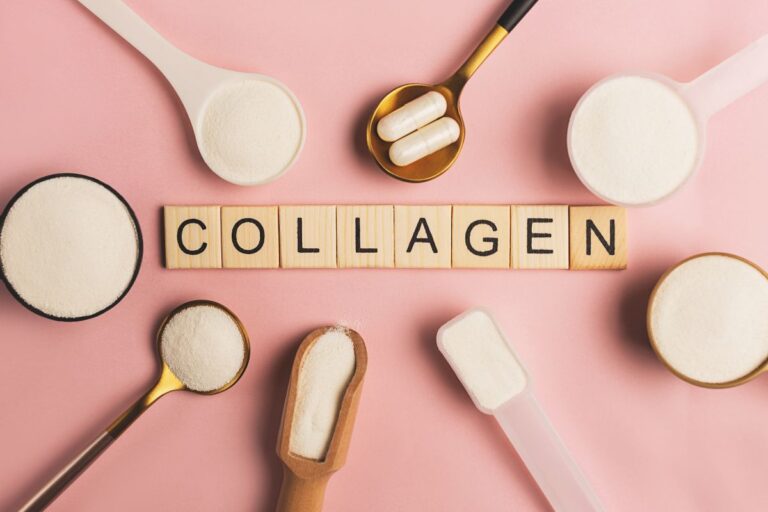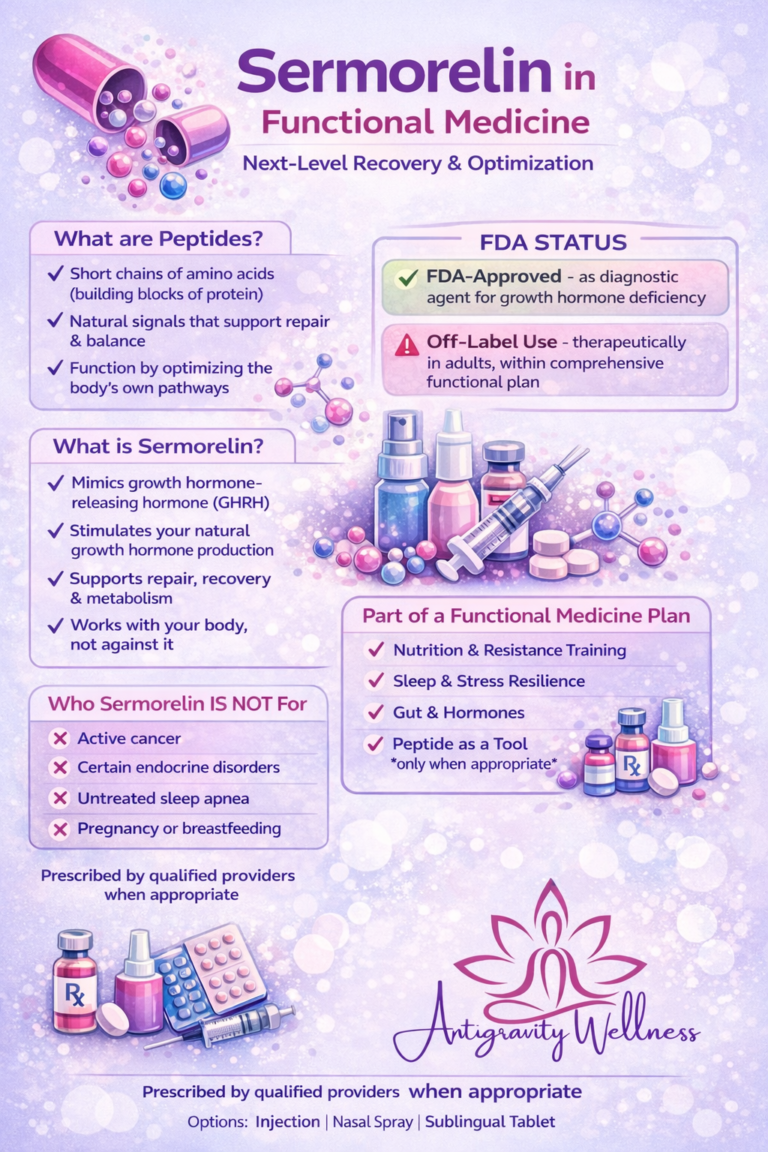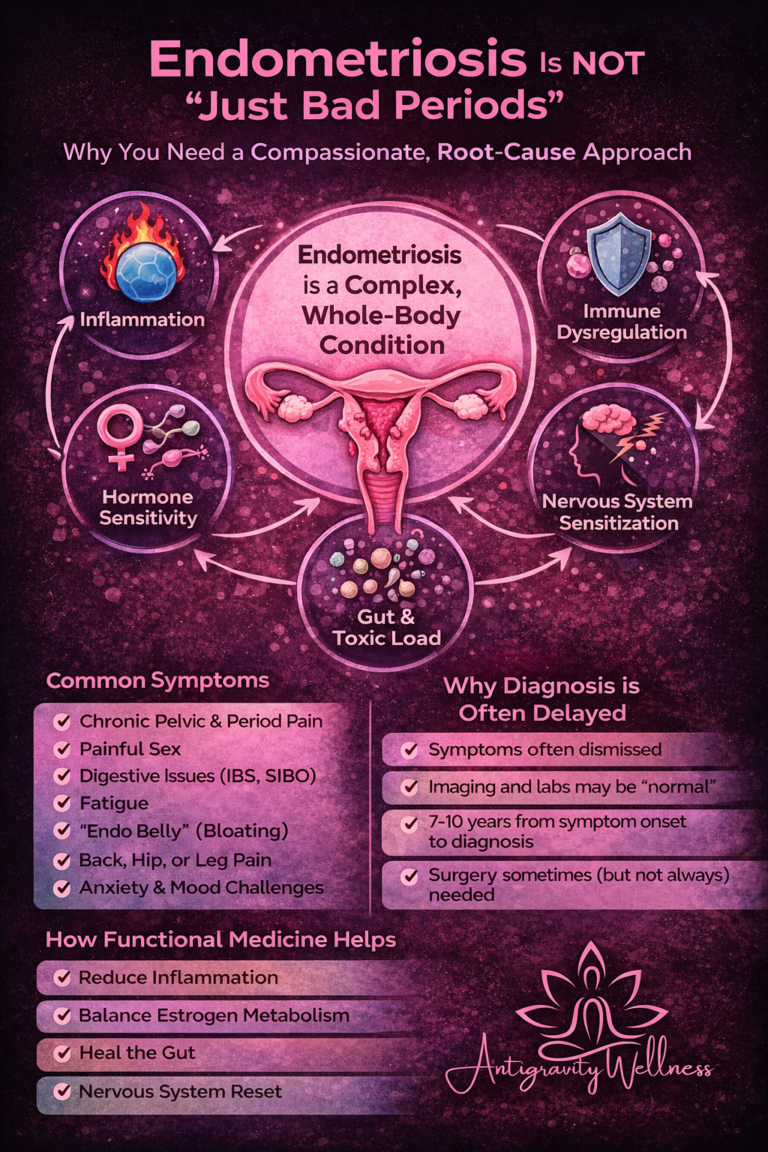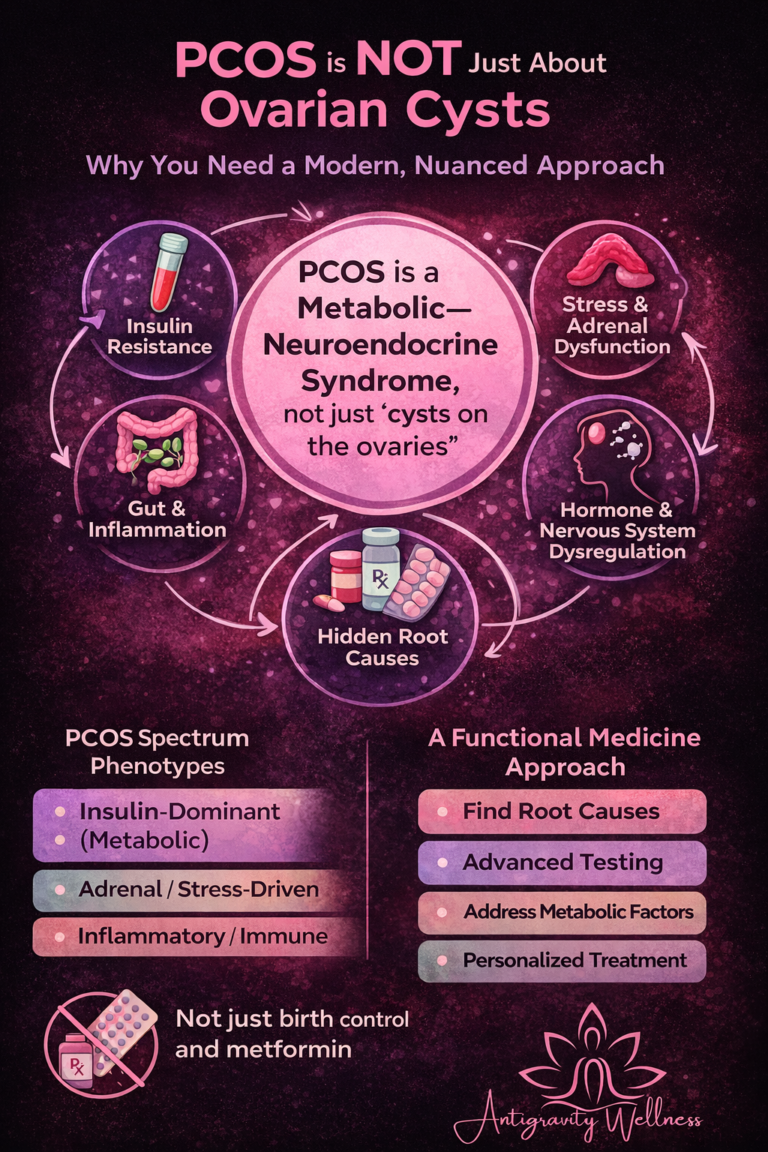
Collagen is the most abundant protein in the body and plays a vital role in maintaining the strength, elasticity, and structure of connective tissues—including hair, skin, and nails. As women transition through perimenopause and menopause, natural collagen production declines, which can lead to noticeable changes in these areas. Understanding the role of collagen and how to incorporate it into your diet and supplementation routine can help restore and maintain your natural beauty and vitality.
What is Collagen?
Collagen is a structural protein that provides the framework for connective tissues in the skin, hair, nails, joints, and bones. It acts as the “glue” that holds these tissues together, supporting their strength, flexibility, and resilience.
Dietary Sources of Collagen
Collagen can be found in animal-based foods rich in connective tissue:
- Bone Broth: Made by simmering animal bones and connective tissue for an extended period.
- Meat Cuts with Skin or Tendons: Such as chicken thighs, pork belly, or fish with skin.
- Gelatin: A cooked form of collagen found in certain desserts or soups.
While these foods provide collagen, the body breaks it down into amino acids during digestion, which may not always translate to significant collagen production in the body. This is why collagen supplementation can be beneficial.
The Importance of Collagen for Hair, Skin, and Nails
1. Hair Health
Collagen supports the dermal layer of the scalp, where hair follicles are located. It promotes strong hair strands by delivering amino acids, such as proline, that are critical for keratin production.
- Deficiency Symptoms:
- Thinning hair.
- Brittle strands prone to breakage.
- Dullness and lack of shine.
2. Skin Health
Collagen maintains skin elasticity, hydration, and resilience. As collagen levels drop, the skin loses firmness, leading to wrinkles, sagging, and dryness.
- Deficiency Symptoms:
- Fine lines and wrinkles.
- Skin that feels dry or rough.
- Sagging in areas like the face, neck, and hands.
3. Nail Health
Collagen provides the structural foundation for strong, flexible nails. It prevents brittleness and peeling, common issues as women age.
- Deficiency Symptoms:
- Brittle nails that break easily.
- Slow nail growth.
- Peeling or ridged nail surfaces.
Why Supplement with Collagen Powder?
Collagen supplementation has become a popular and effective way to boost the body’s collagen levels. When taken consistently, it can improve hair, skin, and nail health from the inside out.
Our Favorite Collagen Powder: Thorne Collagen
- Benefits:
- High-quality hydrolyzed collagen peptides for easy digestion and absorption.
- A pleasant flavor that mixes seamlessly with water, coffee, or smoothies.
- No gritty or chalky texture, making it enjoyable to use daily.
Note: We are not affiliated with Thorne but highly recommend their collagen powder due to its efficacy and ease of use.
How to Use Collagen Powder
- Mix 1 scoop into water, tea, or coffee.
- Add it to smoothies for an extra protein boost.
- Stir it into oatmeal or yogurt for a nutritious breakfast.
- Incorporate it into baked goods, such as protein pancakes or muffins.
How to Identify Collagen Deficiency
Many perimenopausal and menopausal women notice the effects of collagen decline but may not realize the connection. Common symptoms include:
- Wrinkles and fine lines that seem to appear suddenly.
- Thinning hair and nails that break easily.
- Joint discomfort or stiffness due to reduced cartilage support.
Functional testing can help determine whether collagen decline or other nutrient deficiencies are contributing to these symptoms.
Dietary and Lifestyle Tips for Boosting Collagen
While supplementation is effective, adopting a collagen-friendly lifestyle enhances your results.
1. Boost Vitamin C Intake
Vitamin C is essential for collagen synthesis. Add these foods to your diet:
- Oranges, strawberries, and kiwi.
- Bell peppers and broccoli.
2. Protect Your Skin
- Use sunscreen to prevent UV damage, which accelerates collagen breakdown.
- Avoid smoking, as it reduces collagen production.
3. Stay Hydrated
Hydration supports skin elasticity and nail health, enhancing the effects of collagen supplementation.
4. Strength Training and Exercise
Regular exercise stimulates collagen production and improves circulation, delivering nutrients to hair, skin, and nails.
Further Reading and Resources
- The Collagen Diet by Dr. Josh Axe
- Glow: The Nutritional Approach to Naturally Gorgeous Skin by Nadia Neumann
- Research Articles:
How Antigravity Wellness Can Help
At Antigravity Wellness, we take a holistic approach to caring for perimenopausal and menopausal women, addressing concerns like hair, skin, and nail health. Our services include:
- Supplement Recommendations: Access high-quality collagen powders like Thorne through our Fullscript dispensary.
- Dietary and Lifestyle Guidance: Tailored plans to enhance collagen production naturally.
- Functional Testing: Identifying nutrient deficiencies or hormonal imbalances that may affect collagen levels.
If you’re ready to look and feel your best, schedule a brief initial consult today to start your journey.




